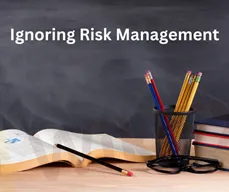简体中文
繁體中文
English
Pусский
日本語
ภาษาไทย
Tiếng Việt
Bahasa Indonesia
Español
हिन्दी
Filippiiniläinen
Français
Deutsch
Português
Türkçe
한국어
العربية
Are You Self-Sabotaging Your Trades?
Abstract:While many traders enter the market with dreams of financial freedom and substantial profits, they often find themselves facing significant losses instead. A common, yet under-discussed, factor behind these losses is self-sabotage.

In the high-stakes world of online trading, success often hinges not just on market knowledge and technical skills, but also on the psychological resilience and discipline of the trader. While many traders enter the market with dreams of financial freedom and substantial profits, they often find themselves facing significant losses instead. A common, yet under-discussed, factor behind these losses is self-sabotage. Understanding the ways traders undermine their own success is crucial for anyone looking to navigate the markets successfully.

Emotions are the arch-enemy of rational trading. Fear and greed are the most common culprits. Fear can paralyze a trader, preventing them from executing well-planned trades, or it can force them to close positions prematurely, missing out on potential profits. On the other hand, greed can push traders to hold onto winning trades for too long, waiting for that extra pip that never comes, or to over-leverage their positions in the hope of outsized gains. This emotional rollercoaster often leads to poor decision-making and significant losses.

A surprising number of traders dive into the markets without a well-thought-out trading plan. A trading plan outlines the strategy, risk management rules, and goals of the trader. Without it, trades are often executed based on whims or gut feelings rather than sound analysis. This haphazard approach almost always ends in disaster. A solid trading plan is a traders roadmap, helping to maintain discipline and consistency, two key components of long-term success.

Overtrading is another common form of self-sabotage. Driven by the excitement of the market or the desire to recoup losses quickly, traders often execute too many trades. This not only increases transaction costs but also leads to less careful analysis and poorer trade quality. Overtrading can rapidly deplete a trading account, turning a promising trader into a frustrated one.

Risk management is often the first casualty of overconfidence. Traders may neglect to set stop-loss orders or may risk too much of their capital on a single trade. This lack of risk management can lead to catastrophic losses. Effective risk management involves setting stop-loss levels, diversifying trades, and never risking more than a small percentage of one‘s trading capital on any single trade. It’s the safety net that can keep traders afloat during rough market conditions.

The temptation to recover losses by increasing trade size or frequency is a classic self-sabotage move. This is often referred to as “revenge trading.” After a losing streak, the emotional toll can lead traders to make irrational decisions, hoping to quickly recover their losses. This usually results in even greater losses and a downward spiral that can be difficult to escape.

After a series of successful trades, traders can become overconfident, believing they have mastered the market. This overconfidence can lead to larger, riskier trades, and a disregard for market analysis and risk management. The market has a way of humbling even the most confident traders, and those who do not respect its volatility often pay a hefty price.

Markets are dynamic and constantly evolving. Strategies that work well in one market condition may fail miserably in another. Traders who are unwilling or unable to adapt their strategies in response to changing market conditions often find themselves on the losing end. Continuous learning and flexibility are essential traits for long-term success in trading.
In summary, self-sabotage in trading is a significant barrier to success, but it can be mitigated through awareness and disciplined practices. Emotional control, adherence to a trading plan, risk management, and the ability to adapt are crucial elements that distinguish successful traders from those who continually struggle. By recognizing and addressing these self-destructive behaviours, traders can improve their chances of achieving their financial goals and navigating the complex world of online trading with greater confidence and success.

Disclaimer:
The views in this article only represent the author's personal views, and do not constitute investment advice on this platform. This platform does not guarantee the accuracy, completeness and timeliness of the information in the article, and will not be liable for any loss caused by the use of or reliance on the information in the article.
Read more

USD/INR, USD/PHP Forecast April 2025
The global forex markets are bracing for April 2025 with divergent forecasts for key emerging market pairs. In particular, the USD/INR and USD/PHP pairs have attracted significant attention amid a mix of central bank interventions, evolving U.S. policy signals, and regional economic shifts. In this article, we review multiple forecasts, examine the driving factors, and outline what traders might expect as the month unfolds.

April Forex Trends: EUR/USD, GBP/USD, USD/JPY, AUD/USD, USD/CAD Insights
Know April’s forex seasonality trends for EUR/USD, GBP/USD, USD/JPY, AUD/USD, and USD/CAD. Historical insights and key levels to watch in 2025.

Should You Beware of Forex Trading Gurus?
Know the reality behind forex trading gurus, examining their deceptive tactics, inflated promises, and the risks associated with trusting them for financial advice.

Webull Launches SMSF Investment Platform with Zero Fees
Webull introduces commission-free SMSF trading, offering over 3,500 US and Australian ETFs, with no brokerage fees and enhanced portfolio tools.
WikiFX Broker
Latest News
Exposing the Top 5 Scam Brokers of March 2025: A Closer Look by WikiFX
Gold Prices Climb Again – Have Investors Seized the Opportunity?
Webull Launches SMSF Investment Platform with Zero Fees
Australian Regulator Warns of Money Laundering and Fraud Risks in Crypto ATMs
The Withdrawal Trap: How Scam Brokers Lure Victims into Paying More
FCA to Investors: Think Twice Before Trusting These Brokers
Trump\s tariffs: How could they affect the UK and your money
Trump gambles it all on global tariffs he\s wanted for decades
HTFX Spreads Joy During Eid Charity Event in Jakarta
How Will the Market React at a Crucial Turning Point?
Currency Calculator







